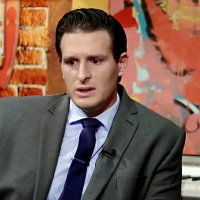 Duval County, FL RICO Act Lawyers
Duval County, FL RICO Act Lawyers
Sponsored Law Firm
-
 x
x

Click For More Info:
-
Joseph A. Gasparro, PA
813 Jackson Rd Jacksonville, FL 32225» view mapCriminal Defense Law Serving the Best Interests Of Our Clients
When you need accurate representation for criminal defense issues, Joseph Gasparro is there for you.
800-971-8621
Not enough matches for Duval RICO Act lawyer.
Below are all Duval Criminal lawyers.
Sponsored Lawyers
1-10 of 61 matches
Divorce & Family Law, Criminal
Joseph Gasparro has experience with family, criminal, business, and estate law. He owns his own law practice in Jacksonville, Florida. He graduated with his Juris Doctor and honors from Florida Coastal Law School in 2015. He offers an initial free consultation, and promises a response by the end of the day.
(more)White Collar Crime, Education, Immigration, Employment, International
Kendra L. Bunn is a Jacksonville, Florida-based immigration attorney and the founder of the Law Offices of Kendra L. Bunn, P.A., established in 2002. With over two decades of experience, she specializes in immigration law, including visa applications, investor applications, business work visas and family-based petitions. Her firm serves clients throughout Florida and has expanded to the Midwest, with offices in Marietta, Ohio, and Athens, Ohio. Ms. Bunn is recognized for her leadership in the legal community. She was one of the first female attorneys to practice immigration law in North Florida and has held significant roles such as the National Liaison to the USCIS Jacksonville Office, AILA Director of National Citizenship Day in Jacksonville, and National Mentor in the areas of F-1 students, researchers, and international faculty in higher education. Her Florida offices are located at 4720 Salisbury Rd, Jacksonville, FL 32256, and she offers services in multiple languages, including English, Serbo-Croatian, Macedonian, Russian, and Italian. Her Midwest offices are conveniently located between Columbus, Ohio and Pittsburgh, Pennsylvania, serving all of Ohio and Western Pennsylvania. In addition to her legal work, Ms. Bunn is involved in community service. She and her family are active members of the Christian Family Chapel in Mandarin, Jacksonville, Florida. She also volunteers frequently with many sports groups in town, while chasing around her two very busy and active children!
(more)Felony, DUI-DWI, Misdemeanor, Traffic
If you or a loved one has been arrested, or is being investigated for a criminal charge, having a lawyer represent you AS SOON AS POSSIBLE is one of the most important things you can do to help. I am Bryan Neal and I am your Jacksonville Criminal lawyer. If you have been arrested, I can represent them at "First Appearance" court, and ask for an AFFORDABLE BOND or an ROR (NO MONEY RELEASE) so that the person arrested can go about their regular life such as school, work and family while I work out the charges. will speak with the PROSECUTOR and ask that the case be placed in a "PTI"( Pre-Trial Intervention) program, which if successfully completed will result in NO CHARGES BEING FILED. I can also ask that a felony case be "dropped down" to a misdemeanor, where there would be NO RISK OF A FELONY CONVICTION. As your criminal lawyer I may ask that you receive treatment for problems with drugs or alcohol INSTEAD OF SERVING A JAIL OR PRISON SENTENCE. There are LOTS OF OPTIONS for people who are arrested besides a JAIL OR PRISON SENTENCE. As your criminal lawyer I will help you get the BEST POSSIBLE OUTCOME. If a person is UNDER INVESTIGATION or has a WARRANT for their arrest, I will speak with the POLICE and the STATE ATTORNEY, so you don't have to ! IT IS IMPORTANT when you hire a CRIMINAL LAWYER that they are familiar with the people making decisions and have COURTROOM EXPERIENCE.
(more)Criminal, DUI-DWI, Motor Vehicle, Accident & Injury, Consumer Protection
Michael is a dedicated Jacksonville Criminal Defense Attorney and Florida DUI Attorney who approaches every case with the utmost skill and effort. Michael is exceptionally skilled in the areas of criminal and traffic matters. Since founding Rainka Law, Michael has focused his practice solely on criminal defense and consumer protection, most specifically DUI defense and violations of consumer protection laws.
(more)



 Joseph Gasparro Jacksonville, FL
Joseph Gasparro Jacksonville, FL AboutJoseph A. Gasparro, PA
AboutJoseph A. Gasparro, PA Practice AreasExpertise
Practice AreasExpertise




